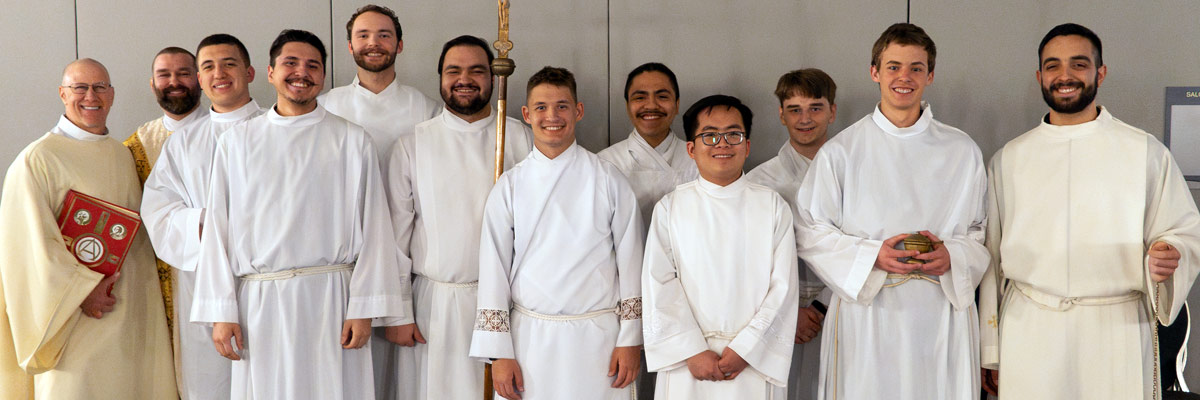Official Website of the
Catholic Diocese of Little Rock
Sixth Sunday of Easter, Year A 2023
Published: May 14, 2023
Bishop Anthony B. Taylor preached the following homily during the installation of lectors Mass at the Cathedral of St. Andrew in Little Rock on Saturday, May 13, 2023.

Bishop Taylor
There was once a time when we were little children, too young to understand, that our parents could not yet use reasoning to teach us and protect us, so they had to resort to inducements ("I'll give you a cookie if you do this.") and disincentives ("I'm going to punish you if you don't quit doing that.")
In either case parents use force — at least the force of their authority — to achieve a good objective. But there comes a time when they begin to use persuasion to form us instead of coercion, and it is then that we begin to make their values our own.
There was once a time when for many people it was sufficient for the Church to resort to inducements ("If you do this you'll go to heaven.") and disincentives ("You'll go to hell if you don't quit doing that.") in order to help us lead a life that will get us into heaven, almost always following a stint in purgatory.
God has placed an often-unrecognized hunger for Jesus in the soul of every person on this planet, a deeply felt need for mercy and forgiveness that only he can fill, an inner ally that is available to undermine that person's resistance to the movement of the Holy Spirit.
In those days most people were devout believers but not very educated, so — out of concern for our eternal destiny — the Church used its moral authority to achieve a good objective, backed up by doctrine and devotional practices solidly rooted in the teaching of Jesus Christ. But those days are now long past. Most people in our society are no longer devout believers and most Catholics are better educated than in the past.
The question for us today is: How do we live and proclaim the good news of Jesus Christ in our present circumstances? We see many people making self-destructive choices today, oblivious to the eventual negative consequences to themselves and to society as a whole. But warnings about hell don't work with people who are no longer sure they even believe in God.
What may work, however, is persuasion. And not just practical, worldly persuasion — like pointing out how bad choices can turn our lives into a living hell even in this world; even atheists could say that. But rather, spiritual persuasion, what Peter calls in our second reading "giving the reason for our hope" — sharing what a difference a living relationship with Jesus Christ has made in our lives.
God has placed an often-unrecognized hunger for Jesus in the soul of every person on this planet, a deeply felt need for mercy and forgiveness that only he can fill, an inner ally that is available to undermine that person's resistance to the movement of the Holy Spirit.
In today's Gospel Jesus promises to send us "another advocate ... the spirit of truth whom the world cannot accept." And once the God fills us with this Holy Spirit through the sacrament of confirmation, Jesus sends us forth to continue his mission of rescuing people from the power of darkness and forming them in the way of truth and life ... a truth which the world does not accept.
But it is also the truth which responds to the deepest longings of the human heart, and yet most people still don't know it. We obviously have a lot of work ahead of us!
So today the Lord sends us forth, empowered by the Holy Spirit, to "give the reason for our hope." And for you who will be installed as lectors today, this hope should be evident in the way that you proclaim God’s word.
We have experienced the mercy and forgiveness that comes from our share in Jesus' victory over the power of sin and death, and now it is our duty — and privilege — to share that gift with others.




